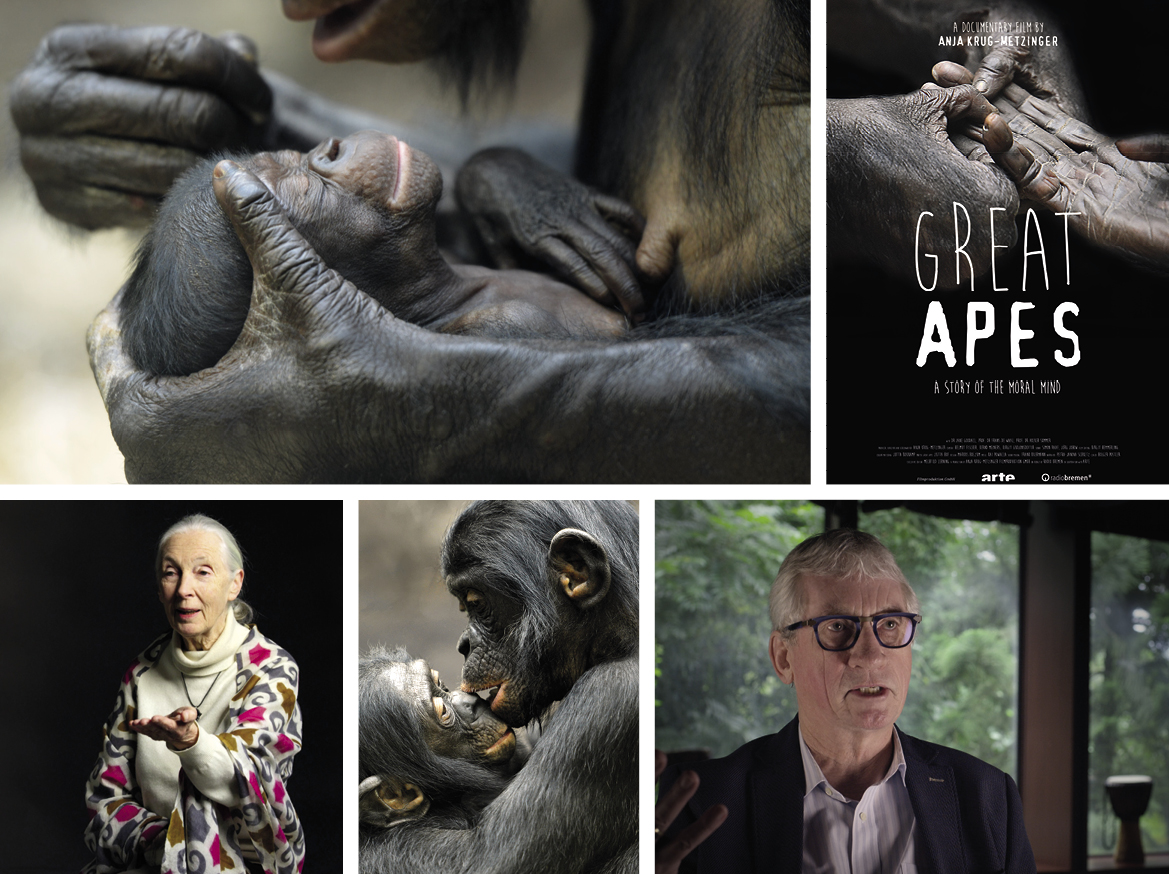GREAT APES – A STORY OF THE MORAL MIND

The social behaviour of chimpanzees and bonobos is similar to that of humans in many ways. By studying them, behavioural scientists can learn much about the origins of human morality and culture.
Studies have shown that chimpanzees are capable of compassion, cooperation, fairness, and reciprocity. They make up after fighting, comfort each other, and care for one another. But they also have many more traits that resemble human behaviours: chimpanzees can for example wage wars lasting several years, as demonstrated by unique film footage. And they even have customs and traditions that vary from one community to the next. In one of West Africa’s last great wilderness areas – the mountain jungles of Nigeria – researchers have discovered mysterious piles of stones left by chimpanzees near trees or in tree hollows. We once thought only Homo sapiens collected stones in this way. Does this mean that there are early forms of religion among apes as well? Just how intelligent are our closest relatives, and are morality and culture perhaps not exclusively human achievements after all? In this journey into the origins of the moral mind, well-known authorities such as Jane Goodall, Frans de Waal and Volker Sommer introduce us to a fascinating realm of scientific and philosophical exploration as they ask: Where does the human start and the animal end?